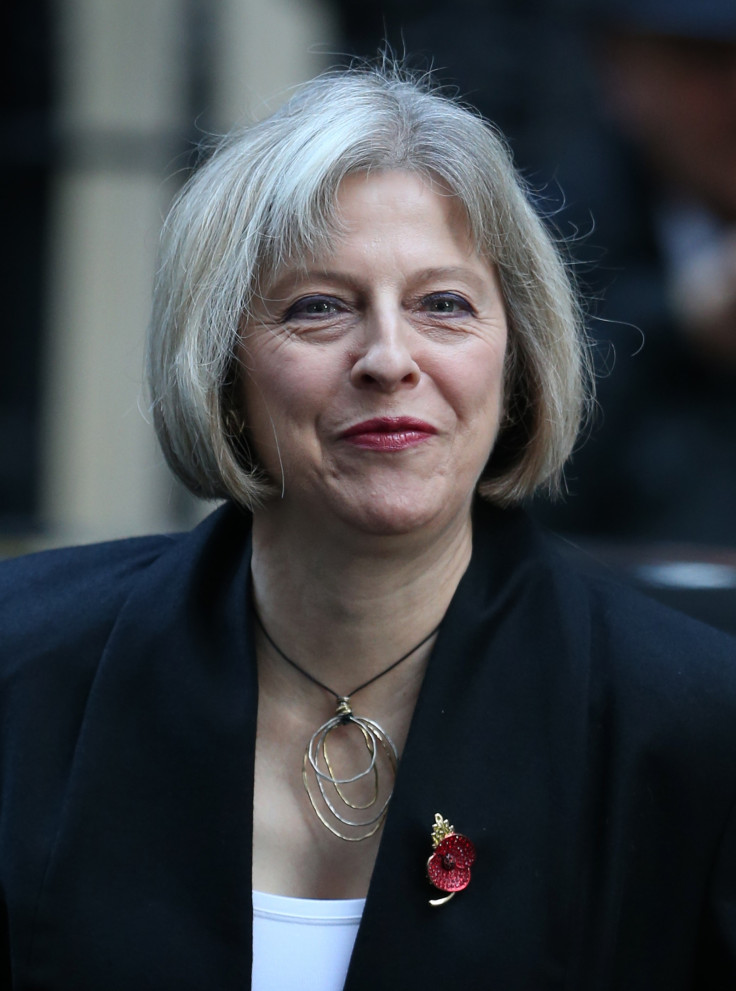Snooper's Charter: Five things you need to know about the Investigatory Powers Bill

Home Secretary Theresa May has just outlined sweeping new powers that will enable law enforcement and government intelligence agencies to snoop on the private data of anyone in the UK, with the intended aim of preventing terrorist attacks and hunting down paedophiles and child abusers.
The new powers are outlined in the Investigatory Powers Bill, also known as the "Snooper's Charter", which overhaul the existing surveillance powers granted by previous laws. Some critics have compared the laws to those seen in the 2006 movie V for Vendetta.
While much of the draft legislation might well be passed into law, there is still time for amendments to be made as the bill will have to go through additional stages of approval, including three readings in the House of Commons and three readings in the House of Lords.
In the meantime, here's what you need to know about the new potential surveillance laws:
Your web and social media use data to be held for a year

Internet companies will have to hold people's web and social media use data for up to a year, but not specific browsing history or content of communications. However, if UK law enforcement agencies want to know exactly what you said, they can get a warrant, but they must demonstrate a compelling need for the information.
The draft legislation says examples of compelling needs would be: To discover the location of a missing person; to keep children safe; and when communications data is the only way to identify an offender.
Tech firms obligated to help government hack devices
While many technology firms like Apple, Google, Facebook and Twitter already willingly assist law enforcement in cases, the draft legislation means that once a warrant is granted, communications firms are legally required to help the government agencies access data on suspects' smartphones and computers.
This means that the tech company providing a service or device that stores your data, such as Apple with its iCloud, will now have to access your data, even if its system has been built to prevent such access (read: Snooper's Charter explained: Would you use an Apple or Google service with bad encryption?).
Police can now hack devices and remotely download your data

All police forces will be permitted to carry out "equipment interference" under the new regime, with a code of practice to be issued to regulate use of "more sensitive and intrusive techniques", which basically means covertly taking data from computers and devices either during a search or by remotely hacking into the device.
Only the MI5, GCHQ, Special Investigations Section (SIS) and the Ministry of Defence are allowed to do this, but warrants are only granted by the secretary of state in cases of national security, serious crime and economic well-being. If the police want to carry out equipment interference, they can apply for a warrant, but only in the case of serious crime.
The government claims that the new laws will ensure that intelligence agencies can only access private data using intrusive methods in the most urgent of circumstances, and that the laws prevent them from accessing the data without a warrant.
Spy agencies can see who journalists, MPs and lawyers talk to
The draft legislation states that intelligence agencies can only see metadata on journalists, doctors, lawyers, MPs and religious ministers – for example, this means that while they can't see what exactly a journalist says to a source, or what an MP says to a citizen in their constituency, law enforcement can see when you spoke, how long you spoke for and where you were when you had the conversation.
However, intelligent agencies can get a warrant to reveal what the communications were, but the information has to be kept privileged and protected. This is a sticky point as the new laws mean that any government minister's conversations can be revealed, from MPs and members of the House of Lords to UK MEPs and members of the Scottish, Welsh and Northern Ireland Parliaments/Assemblies.
And if the intelligence agency wants to intercept an MP's communications, the prime minister must be consulted first, but it can be carried out without parliament knowing.
But more checks are in place, says the UK government

While the draft legislation set out in the Investigatory Powers Bill does look rather Big Brother and might be making you think of V for Vendetta, the UK government has stressed repeatedly in the draft documents that none of the spying powers set out are possible without a warrant, and that it will be harder to have a warrant approved.
All warrants must now be approved not just by secretary of state but also by the judicial commissioner, and both law enforcement and intelligence agencies must prove that the reason for the warrant passes specifically defined factors.
The Investigatory Powers Commission, made up of seven judges, is to oversee the use of all investigatory powers and will need to audit all authorisations of warrants and also inspect how the agencies given the snooping powers actually use them.
© Copyright IBTimes 2025. All rights reserved.






















